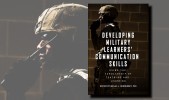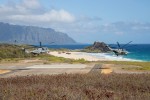Search
Using the filters to the left, click your selection, it will become bold and filter the results, click it again to remove that filter.
Colonel Tony Duus is a Senior Researcher at the Australian Army Research Centre. He supports tactics and planning training at LWC, assisting on the Combat Officers Advanced Course and the Foundation Majors Course as a senior planner. … Anthony Duus …
Executive Summary The ongoing conflict in Ukraine, originating with the Russian invasion in 2014 and escalating significantly following the full-scale invasion in February 2022, has exerted a profound influence on global security dynamics as well as on the future direction of war. While the likelihood of achieving a peaceful resolution by 2025 remains remote, the war has offered invaluable insights into contemporary warfare, specifically in the areas of advanced technological applications, strategies for …
Air University Press , 2022, 91 pp Paperback ISBN: 978158566319 PDF ISBN: 9781585663200 Edited By: Megan J Hennessey, PhD Reviewed By : Jodie Lording Developing Military Learners’ Communication Skills Using the Scholarship of Teaching and Learning , edited by Megan J Hennessey, is a timely and insightful collection focused on communication instruction of officers within the United States’ (US) system of professional military education (PME). The volume persuasively argues for a more deliberate, …

Major General Michael Krause is a cavalry officer and has commanded 2nd Cavalry Regiment and 1st Brigade when it was the Army’s mechanised brigade. He has also served as an operational staff planner, both as the J5 at Headquarters Joint Operations Command and as the Chief of Staff Plans on Headquarters IJC in Afghanistan. He has served on operations in Iran, Iraq, Afghanistan and Solomon Islands. He was the operations instructor at Australian Command and Staff College, and served as Military Advisor to the …
Brigadier Jodie Lording CSM is an Australian Army reservist with over 30 years' experience. She has commanded at home and on operations, including deployments to Timor, the Middle East, and Domestic Operations. She also served as the chief logistic planner within a 3-Star Coalition Headquarters. Her civilian career centres on learning and development, human resource management and IT business management, coupled with serving on a number of volunteer boards. Jodie holds numerous academic qualifications in …
The Australian Army’s current organisational structure is reminiscent of the fable of the rally driver who would not change his Cooper S Mini after he gave up racing and married. When the rally driver’s first child arrived, he retained the Mini as the family car on the assumption that he would eventually return to racing. A second child soon followed and the family could barely fit in the car. Yet the rally driver refused to dispose of his beloved racing vehicle. A third child duly arrived and the family …
Like many Australian soldiers who have served large parts of their careers between the end of the Vietnam War in the early 1970s and the deployments to East Timor, Afghanistan and Iraq since the end of the 1990s, I have not participated in a combined arms assault. The long years during which the Army was confined to continental defence resulted in a dichotomy between our doctrinal theory and military practice. Since the adoption by the Army of a maritime concept of strategy, there has been considerable …
The New Era of US-China Strategic Competition Cambridge Georgetown University Press, 2023, 320 pp Hardcover ISBN: 9781647123581 Edited By : Evan S Medeiros Reviewed By : Jade Guan As strategic competition becomes the defining feature of US-China relations, policymakers, analysts, and national security professionals are grappling with its meaning, implications, and trajectory. In this context, Cold Rivals: The New Era of US-China Strategic Competition , edited by Evan S. Medeiros, a top-notch expert on …

Dr Jade Guan is Senior Lecturer in International Politics and Strategy at Centre of Future Defence and National Security of Deakin University. Her teaching and research focus on geopolitics in the Indo-Pacific, linkages between China’s foreign policy and domestic politics, and Chinese strategic thinking on critical regional security and strategic issues. … Jade …
Lessons for Littoral Logistics Introduction Australia’s Littoral Manoeuvre Group (LitManGp) marks a step-change in how the Army projects and sustains land power across the Indo-Pacific. Built from the outset to deal with contested littorals, its design and employment should be anchored on four principles: movement, self-protection, deception, and persistence. Movement ensures we can reach, bypass and sustain forces across archipelagic terrain. Self-protection(organic weapons, sensors and C-UAS, underpinned …


